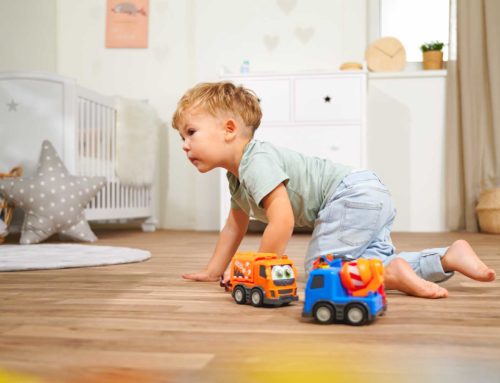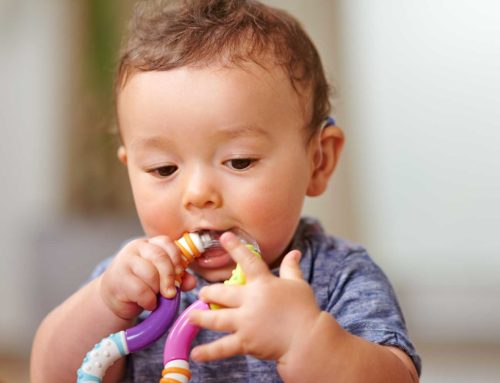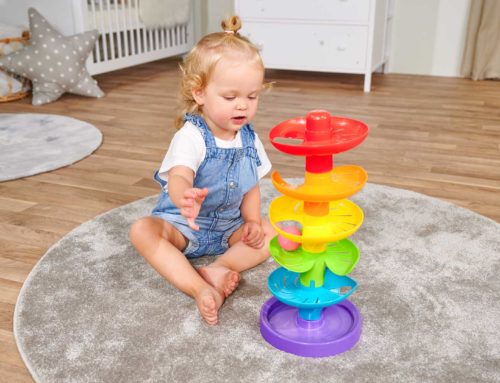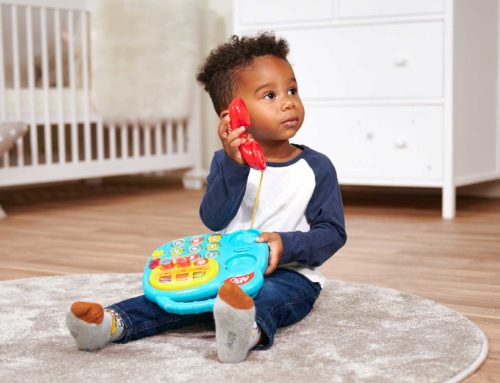Development in the first three months
During the first three months, your baby goes through many changes. Although each baby develops individually, there are some milestones that other babies reach at a similar age. That said, infant development is not an exact science.
Motor skills
At first, your newborn’s head will be shaky and movements jerky. Soon your baby will lift his head and chest while lying on his stomach. At the same time, it will stretch his legs and push outwards. Your baby might even hold a toy if you hold it in front of it.
Hearing
Infants are susceptible to sounds. It will not take long for your baby to recognize you by your voice, and it will respond by smiling and gurgling. A little later, it will begin to turn in the direction of the sounds.
Seeing
The baby will focus on your face during the first four weeks, especially your eyes when feeding. Later, it will recognize patterns in contrasting colors or black and white, looking at them intensely. At about two months, the baby’s eyes are already better coordinated, allowing him to track an object with his eyes. Not long after, your baby might recognize people from a greater distance.
It is exciting when your baby begins to recognize familiar objects and people from a distance.
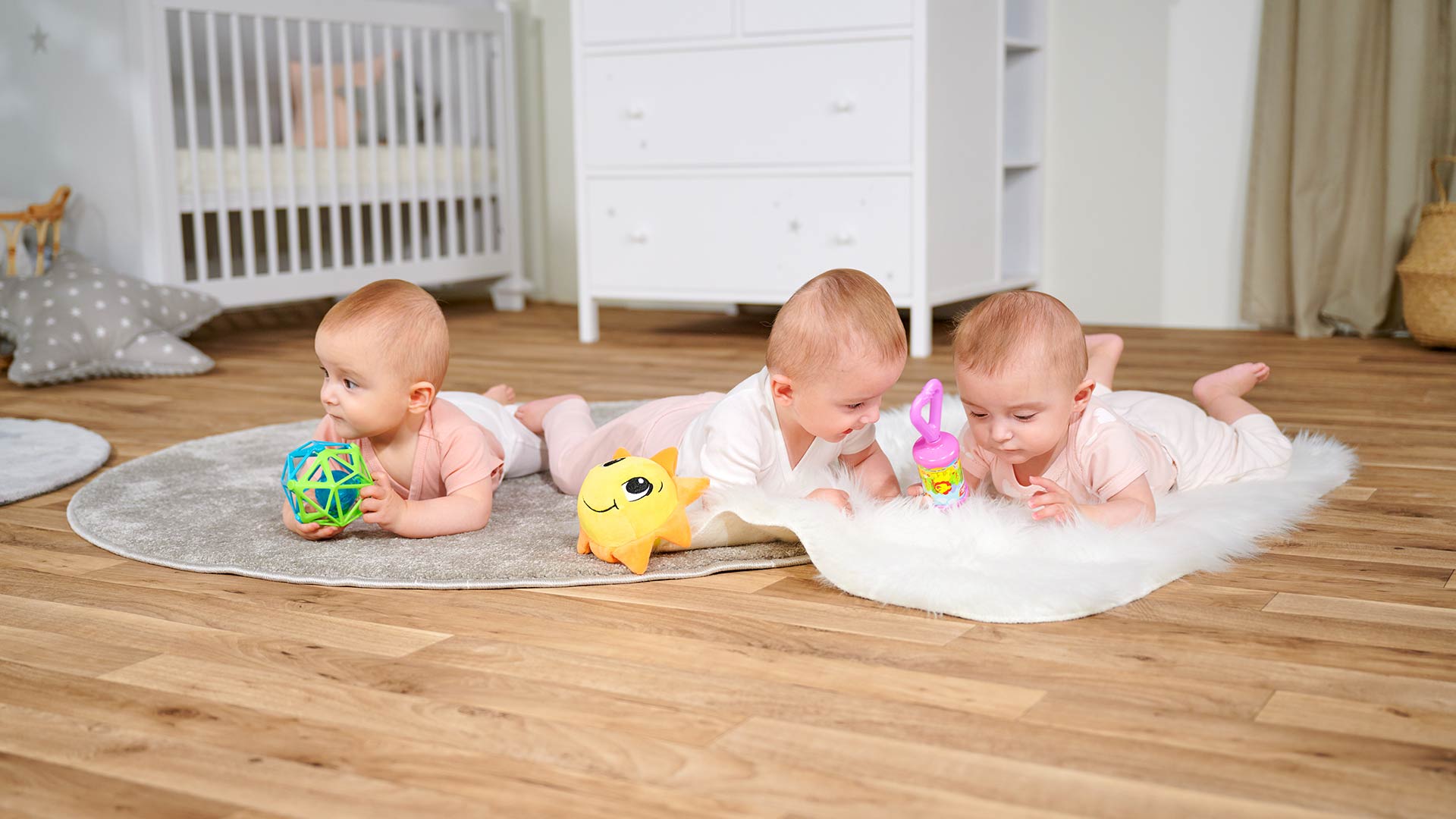
Communication
Your baby can coo and repeat vowel sounds when you talk or play with him by two months of age.
Encourage your baby’s development
Your relationship with your baby is the foundation for his healthy development. Trust in your ability to meet your baby’s needs.
Hold your baby often
Holding your baby can help your newborn to feel safe, secure, and loved. Let your baby grab your little finger and touch your face.
Talk to your Baby
Simple conversation lays the foundation for language development. Sing or read a story aloud. Ask questions and respond to your Baby’s cooing and gurgling. Describe what you see, hear, and smell when you are at home or outside. Remember that your tone of voice conveys ideas and feelings.
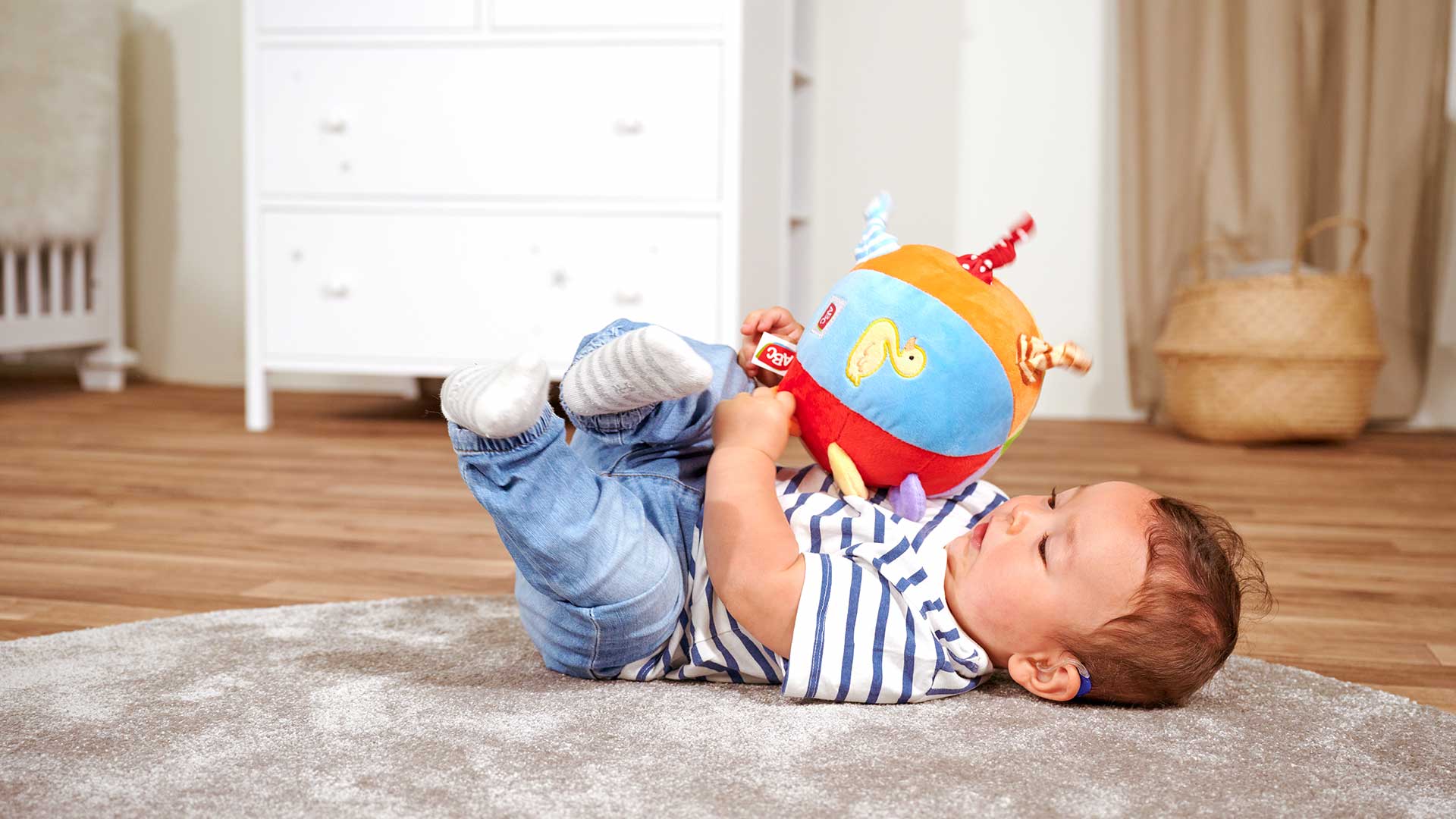

Change its position
Hold your baby facing outward. Under close supervision, place your baby on his tummy to play. Hold a colorful toy in your hand or make an interesting noise to encourage your baby to lift his head.
Stimulate his sense of touch by petting your baby with varied materials such as fur, felt, and fabric. Stroking and massaging will help soothe your baby.
Tip: Some infants might get restless or even get frustrated when lying on their tummies. Make it a habit that daytime is tummy time and resting and sleep time is on its back!
During the first three months, your baby goes through many changes. Although each baby develops individually, there are some milestones that other babies reach at a similar age. That said, infant development is not an exact science.
Motor skills
At first, your newborn’s head will be shaky and movements jerky. Soon your baby will lift his head and chest while lying on his stomach. At the same time, it will stretch his legs and push outwards. Your baby might even hold a toy if you hold it in front of it.
Hearing
Infants are susceptible to sounds. It will not take long for your baby to recognize you by your voice, and it will respond by smiling and gurgling. A little later, it will begin to turn in the direction of the sounds.
Seeing
The baby will focus on your face during the first four weeks, especially your eyes when feeding. Later, it will recognize patterns in contrasting colors or black and white, looking at them intensely. At about two months, the baby’s eyes are already better coordinated, allowing him to track an object with his eyes. Not long after, your baby might recognize people from a greater distance.
It is exciting when your baby begins to recognize familiar objects and people from a distance.

Communication
Your baby can coo and repeat vowel sounds when you talk or play with him by two months of age.
Encourage your baby’s development
Your relationship with your baby is the foundation for his healthy development. Trust in your ability to meet your baby’s needs.
Hold your baby often
Holding your baby can help your newborn to feel safe, secure, and loved. Let your baby grab your little finger and touch your face.
Talk to your Baby
Simple conversation lays the foundation for language development. Sing or read a story aloud. Ask questions and respond to your Baby’s cooing and gurgling. Describe what you see, hear, and smell when you are at home or outside. Remember that your tone of voice conveys ideas and feelings.


Change its position
Hold your baby facing outward. Under close supervision, place your baby on his tummy to play. Hold a colorful toy in your hand or make an interesting noise to encourage your baby to lift his head.
Stimulate his sense of touch by petting your baby with varied materials such as fur, felt, and fabric. Stroking and massaging will help soothe your baby.
Tip: Some infants might get restless or even get frustrated when lying on their tummies. Make it a habit that daytime is tummy time and resting and sleep time is on its back!

